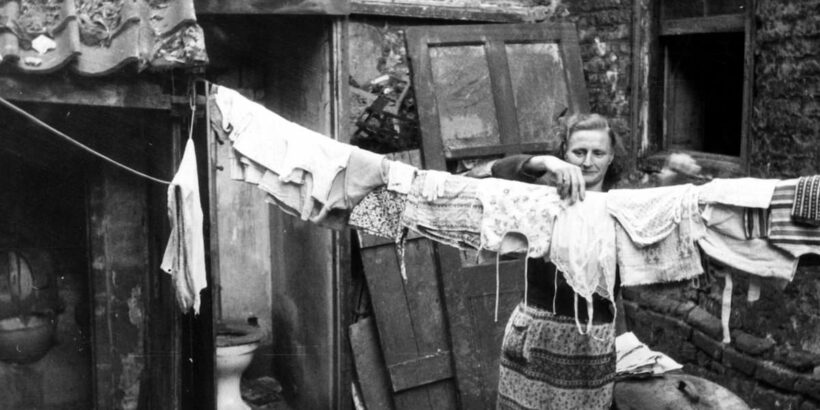When the 60s were far from swinging! Book details the dark history of the popular decade – when homosexuality was still illegal, suicide a crime and racism rife
- David Kynaston’s book catalogues events in Britain between 1962 and 1965
- READ MORE: Milk from a cow in Trafalgar Square? Those were the days!
History
A NORTHERN WIND: BRITAIN 1962-65
by David Kynaston (Bloomsbury £30, 654pp)
You narrow the focus, you can see everything. Cataloguing events in Britain between 1962 and 1965, David Kynaston’s 700 pages find room for Manfred Mann’s hit Do Wah Diddy Diddy, Hughie Green opening Ilford’s furniture supermarket, and Margot Fonteyn dancing with Nureyev at Covent Garden.
We are also informed that in 1964, street photographers who used monkeys were banned in Clovelly, Devon. These were the years of the Profumo Scandal, the Great Train Robbery (when 15 men got away with £2,631,684 which is estimated to be worth as much as £50million today) and the fear of a nuclear holocaust.
‘At any moment the huge heat-blast would come’, provoked by Soviet ships steaming towards the American military blockade around Cuba.
The Home Office advised survivors to wear ‘stout shoes’ and to keep warm with ‘a travelling rug’. On the box, everyone adored The Black and White Minstrel Show (16.5 million viewers weekly).
‘Blacking up is the equivalent to clowns’ make-up and it is all traditional entertainment,’ argued the producer. Z Cars was on. Crossroads began. Jimmy Savile made his first appearances, crowning carnival queens. Ian Brady and Myra Hindley started picking off victims.
This is not a book: it’s a research dossier for a book yet to be written. What, nevertheless, struck me about all this material was that Victoriana was still in full force. So, the good parts were destroyed, through greed and commercialism, and the bad parts retained, for example, homosexuality was still illegal, suicide a crime, racism rife – a typical, unapologetic comment being: ‘I do not take coloured guests because it is a small, hotel and, in a family atmosphere, such as we have, it would be embarrassing.’
It’s horrifying to read about the town planners and architects demolishing 19th-century buildings. Horsham, Wallingford, Glasgow, Worcester and Bristol, among many other cities and historical centres, were insensitively re-developed.
Tall office blocks and high-rise flats went up. Ring roads, shopping centres, multi-storey car parks and expressways replaced Georgian terraces, atmospheric alleys, cobbles, theatres, churches, market halls, and historic Corn and Coal Exchanges.
When it came to Victorian homes – so sought-after today – people couldn’t wait to rip out ‘unappealing’ original features, such as cornices, panelled doors, tiles and fireplaces, replacing them with plywood and melamine.
On the other hand, hospitals remained ‘gloomy and depressing’. Barely 15 years old, National Health Service facilities were operating like a successor to workhouses, which had been ‘a byword for human misery’. There was a lack of ‘support and friendliness’ since patients didn’t stay on wards ‘to be pampered’. Sick children were separated from parents and mental health problems meant electro-convusive shocks. You could find yourself incarcerated as a geriatric for being ‘eccentric, confused, forgetful, or just plain deaf’, which would be me finished. Remand homes and children’s homes, where ‘discipline reigned supreme’, were similarly Dickensian, as were ordinary schools.
‘Child-centred education,’ says Kynaston, ‘was seen as psychological claptrap and flogging with a bamboo cane was regarded as a useful deterrent.’ It was common practice to slap pupils across the face or cane boys for having long hair. Revolution here led in time to the comprehensive school system: ‘The essential point is that all children should have an equal opportunity of acquiring intelligence, developing their talents and abilities to the full.’
Which is fine until you grasp the extent of the sexism. Girls had to score higher marks than boys for entry into grammar schools because boys had to be the bread-winners. Family planning clinics saw their duty as ‘helping young couples to have a child, not to avoid having children’. Contraception earned disapproval, as it opened the way ‘to unbridled licence’. Sex wasn’t about fun and pleasure, but bound up with ‘religious and moral implications’.
In the early Sixties, were there any signs of social improvement or imagination? Not really. Though people began to make daring visits to Chinese restaurants, housewives still boiled vegetables for an hour-and-a-half, eradicating the Vitamin C. Thalidomide was available on prescription, though abortion was forbidden. The idea of a Common Market or European Union was anathema: ‘British eyes and ears should be turned towards the English-speaking world.’
The winter of 1962/63, during which the poet and novelist Sylvia Plath gassed herself, symbolised the paralysis. It was ‘the longest cold spell for 70 years…a cold that penetrated the sheets and misted the windows, congesting our chests and stealing our breath’.
Churchill died in 1965, aged 90, a ‘war-mongering old bugger’ to the young, a hero like Wellington to the old. Harold Wilson rose as Harold Macmillan fell, putting Labour back in power after 13 years. A sum of £85million was invested in Concorde. The Beatles were in the ascendant, with Love Me Do.
Yet Britain was still the place where actor Leslie Phillips was not allowed to play a vicar in a BBC sitcom because he’d been exposed as having had an affair. The Sixties were nowhere near beginning to swing – which suited the likes of the Queen Mother who, when she looked ahead at what might happen (permissiveness, a lack of deference, swear words in novels) said she felt ‘quite sick with distaste’.
Source: Read Full Article
